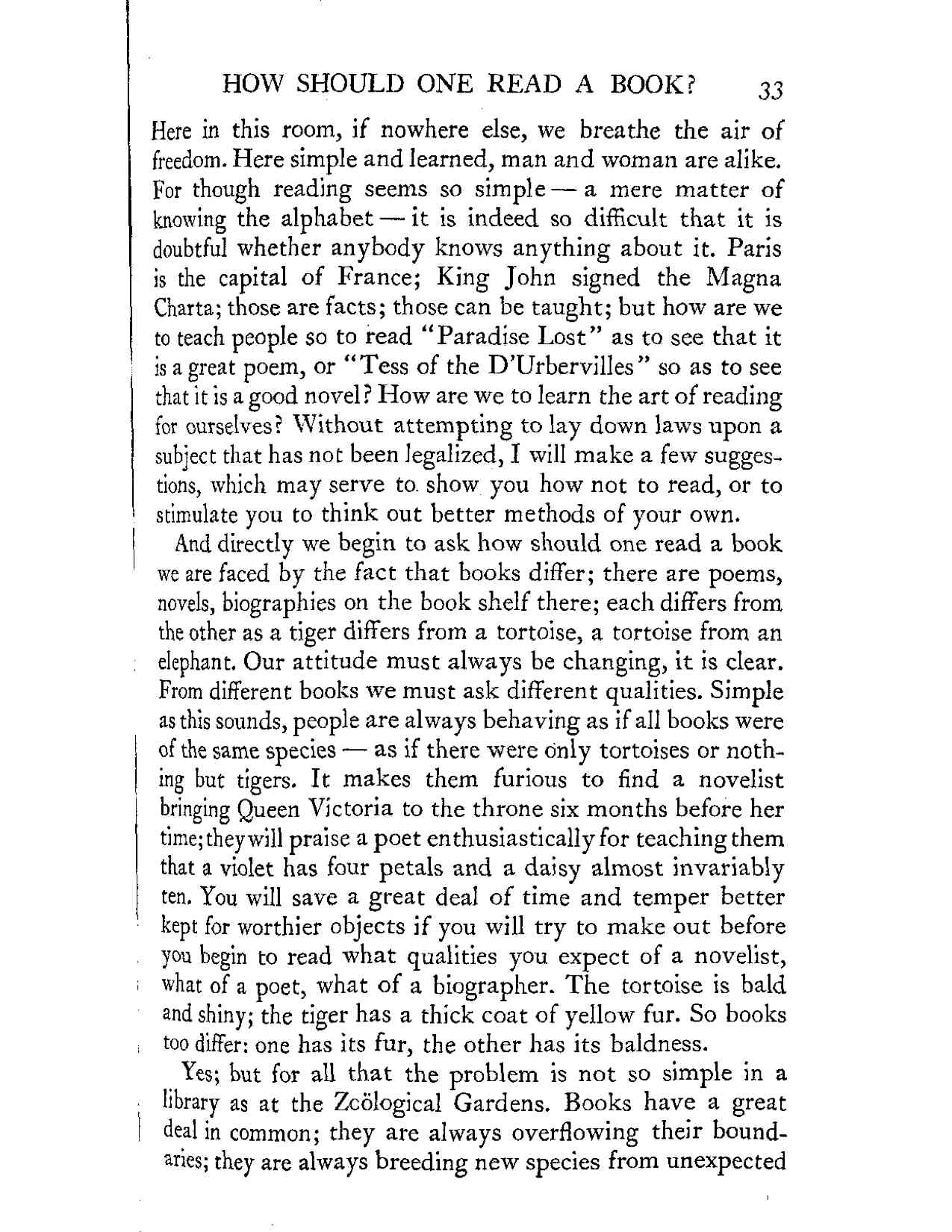
Here in this room, if nowhere else, we breathe the air of
freedom. Here simple and learned, man and woman are alike.
For though reading seems so simple—a mere matter of
knowing the alphabet—it is indeed so difficult that it is
doubtful whether anybody knows anything about it. Paris
is the capital of France; King John signed the Magna
Charta; those are facts; those can be taught; but how are we
to teach people so to read “Paradise Lost” as to see that it
is a great poem, or “Tess of the D’Urbervilles” so as to see
that it is a good novel? How are we to learn the art of reading
for ourselves? Without attempting to lay down laws upon a
subject that has not been legalized, I will make a few sugges-
tions, which may serve to show you how not to read, or to
stimulate you to think out better methods of your own.
And directly we begin to ask how should one read a book
we are faced by the fact that books differ; there are poems,
novels, biographies on the book shelf there; each differs from
the other as a tiger differs from a tortoise, a tortoise from an
elephant. Our attitude must always be changing, it is clear.
From different books we must ask different qualities. Simple
as this sounds, people are always behaving as if all books were
of the same species—as if there were only tortoises or noth-
ing but tigers. It makes them furious to find a novelist
bringing Queen Victoria to the throne six months before her
time; they will praise a poet enthusiastically for teaching them
that a violet has four petals and a daisy almost invariably
ten. You will save a great deal of time and temper better
kept for worthier objects if you will try to make out before
you begin to read what qualities you expect of a novelist,
what of a poet, what of a biographer. The tortoise is bald
and shiny; the tiger has a thick coat of yellow fur. So books
too differ: one has its fur, the other has its baldness.
Yes; but for all that the problem is not so simple in a
library as at the Zoölogical Gardens. Books have a great
deal in common; they are always overflowing their bound-
aries; they are always breeding new species from unexpected






